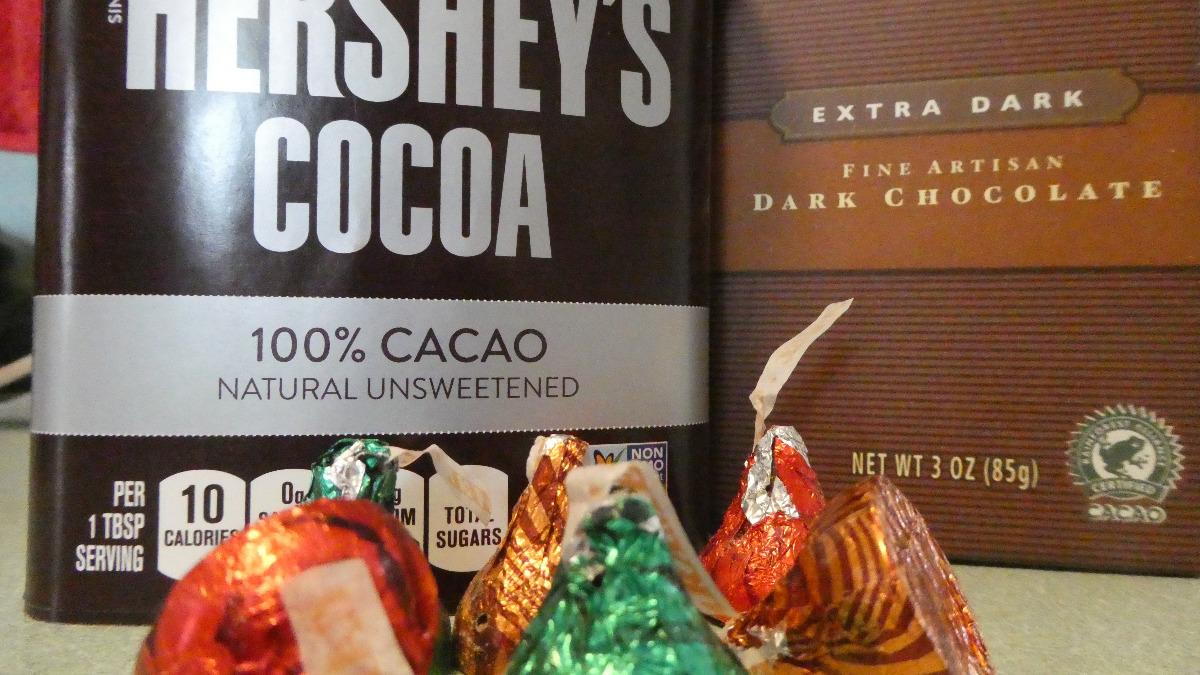Why is Chocolate Toxic to Pets?

- posted: Feb. 01, 2021
Why is Chocolate Toxic to Pets?
Valentine’s Day is just around the corner, which means chocolate will be in abundance as a popular gift. Almost everyone knows that dogs and other pets shouldn’t eat chocolate, but do you know why the sweet stuff is so toxic to our furry friends? The answer is quite a mouthful—methylxanthines. Methylxanthines are chemical compounds like theobromine and caffeine found in chocolate and to a lesser degree in coffee and tea. Our pets’ bodies do not rapidly break down these compounds like humans, so they remain in their systems for a long time. These substances can cause mild, unpleasant symptoms like vomiting and diarrhea. But they can also have more serious effects like increased heart rate, seizures and even coma and death depending on the amount of methylxanthine present and on how much is ingested.
Pure cocoa powder like that used for baking contains the highest levels of theobromine and caffeine at 800mg/oz. By comparison, milk chocolate has only 64mg/oz.
As little as one ounce of chocolate per pound of body weight can be lethal to a dog or cat!
To put that into perspective, ingestion of an entire 10.5 oz. bag of Hershey’s Kisses could be fatal to a small 10 lb. dog or cat. Baker’s chocolate (pure cocoa cakes or powder) and dark chocolate pose the highest risk. White chocolate and the chocolate substitute, carob, are safe for pets since they do not contain any cocoa or methylxanthines and are sometimes even used in pet treats. However, white chocolate is high in fat and sugar and should be fed sparingly. Of course, candy wrappers may also pose a threat as a secondary issue as they could get wadded up and stuck in the intestine causing a blockage.
Severe toxic effects of chocolate can be seen within 6-12 hours after ingestion. Vomiting and diarrhea may occur sooner. Chocolate toxicity is treated by “decontamination.” If ingested within about two hours of arriving at the vet and if the pet is alert, vomiting can be induced with drugs. Activated charcoal is also be administered to prevent further absorption of toxic compounds. Pets with serious symptoms are also treated with supportive care such as IV fluids and medications to control abnormal heart rhythms or seizures if present.
Even though chocolate is a tasty treat for us, you now know why our pets should never be given chocolate. If a pet accidentally ingests a very small amount, he or she is likely to be fine. But, remember that even small amounts of cocoa powder and other dark chocolates contain large amounts of methylxanthines and your pet, especially a small dog and cat, may not need to eat very much to become seriously ill. Contact your veterinarian if there is any doubt that your pet may have ingested chocolate. Better to be safe than sorry. Remember to give your pet lots of hugs and kisses this Valentine’s Day, just not of the chocolate variety!
This blog brought to you by the Patton Veterinary Hospital, serving Red Lion, York and the surrounding communities.
Location
Patton Veterinary Hospital
425 E Broadway
Red Lion, PA 17356
